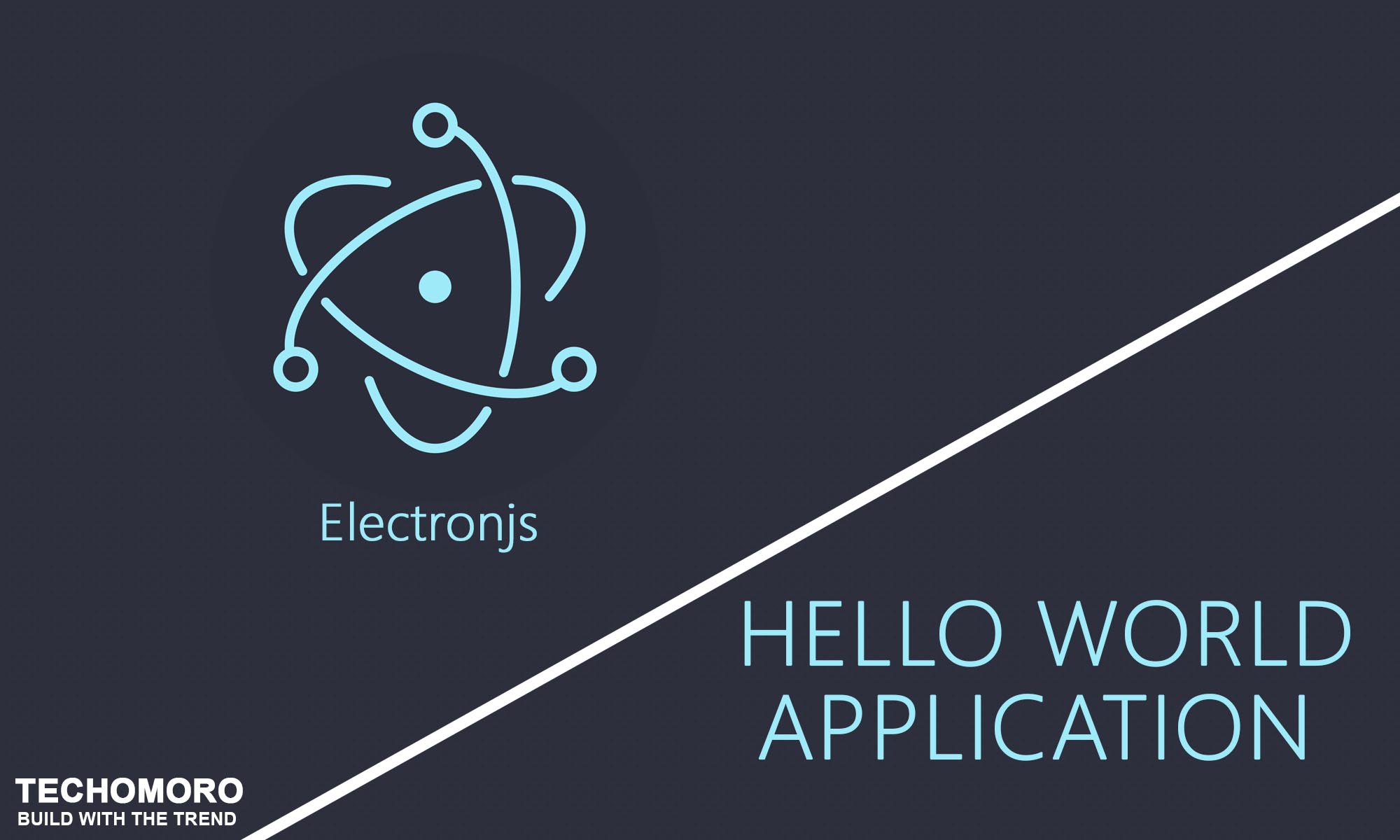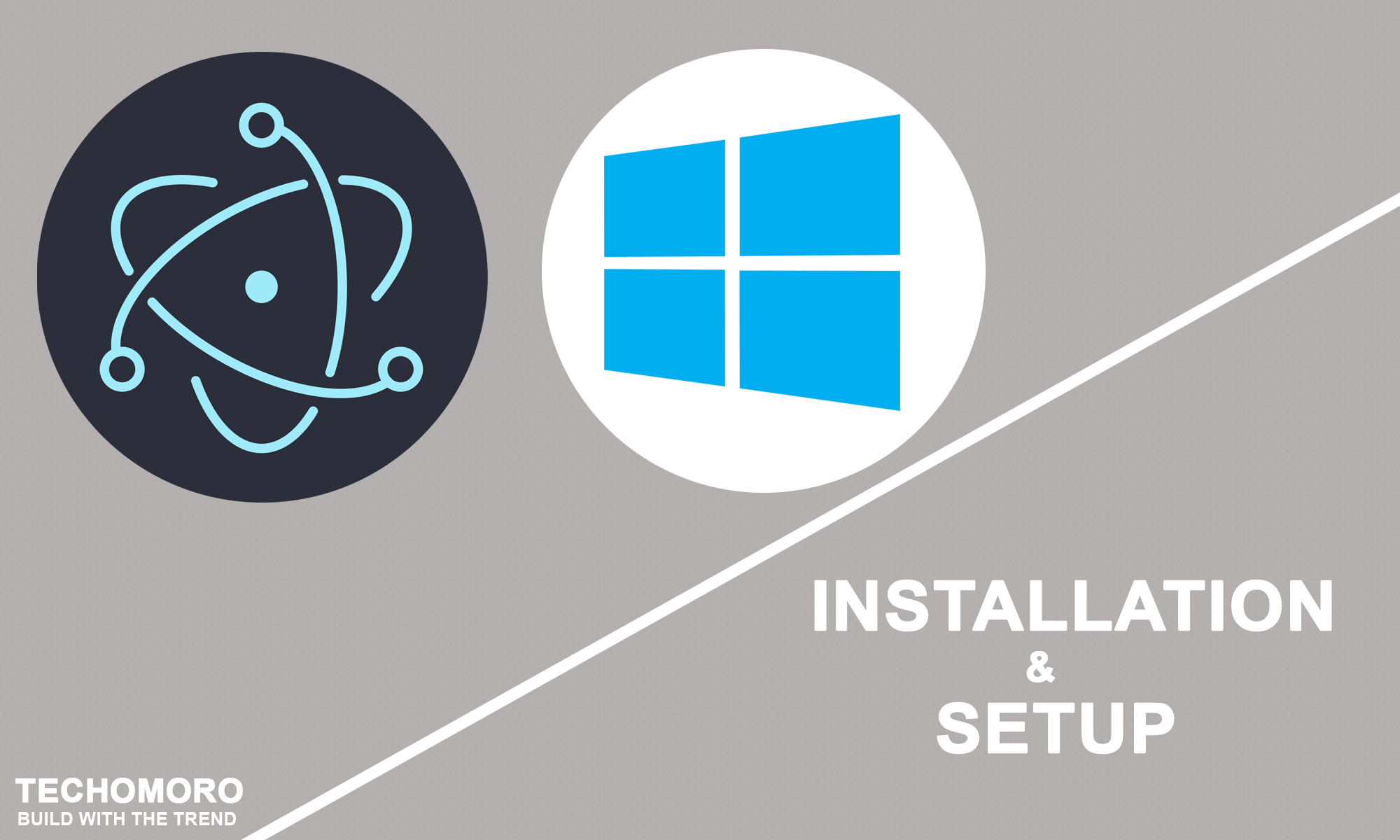Are you one of those who is trying to find the best framework with the help of which you can build cross-platform desktop applications? If yes, then with the help of this article, we would be discussing that one framework with the support of which you would be able to do so. It’s Electron.js.
We can develop a desktop application for Windows OS using an IDE provided by Microsoft which is Visual Studio. In the same way, macOS applications can be built within Xcode IDE. But the one thing we have to remember is that it needs to learn C# to develop a Windows app using Visual Studio. Also, Objective C or Swift has to be learned to develop a macOS application in Xcode.
So building and maintaining a desktop application that supports both the Operating Systems is difficult. But Electron.js make it possible for us.
Without taking much of your time, let us directly head towards the main topic and have a look at which is the best framework for cross-platform desktop app development.
What is Electron.js?
Electron.js is a framework to build cross-platform desktop applications. Although if you are related to web development, then you must be knowing that what cross-platform means. But in case you are not aware of it, then let me tell you that cross-platform desktop application development is that type of development, in which you would be able to use the developed application on various platforms or operating systems.
Moreover, cross-platform development is also converted into two different types. From which the first type is in which you yourself have to do all the compilation for your application so that it can work over various platforms. While the second category is that in which you don’t have to do any special preparation, you would be able to run the applications on various platforms efficiently directly.
You would be happy to know that Electron.js is such a framework in which you would not have to do any special preparation for letting your desktop application work on various platforms. As it offers pre-compiled code for several different platforms. This is also one of those reasons, which made Electron.js the best framework to build cross-platform desktop applications.
While using Electron.js, you would be working with HTML5, CSS, and JavaScript. Moreover, it is an open-source project, with which you must have come to knew that Electron.js would have a highly supportive and large community who will be there to enhance this framework and help you in any problem during app development.
Who created Electron.js?
A lot of people do not know that Electron.js was first known as Atom Shell, and it was created by Cheng Zhao, an engineer at GitHub. The primary reason behind the creation of Atom Shell, which is presently known as Electron.js, is to provide a simple tool such as a cross-platform text editor on which developers can work with JavaScript, HTML, and CSS.
Let us have a look at the journey of being Electron.js from Atom Shell. So in January 2013, this main project with name atom-shell was started, and it was established as an open-source platform in May 2014. In April 2015, it was named Electron, and hence in January 2016, API 1.0 was released.
Features of Electron.js
Everyone knows that Electron is a framework used for the creation of cross-platform web applications, but not all of them know about every feature of Electron.js. So with this point, we are going to have a look at all the features that you would be able to take advantage of with Electron.js.
1. Helps to develop a high-quality feature-loader cross-platform desktop application
The most important feature that is being offered by Electron.js is that you would be able to create high-quality feature-loaded cross-platform desktop applications effortlessly.
2. It’s Business logic and application structure
You would be able to notice in Electron.js is the number of business logic and application structures, which are going to help you a lot in the development of your desktop applications.
3. Chromium engine support
Electron.js supports chromium engine with the help of which you would be able to access several numbers of development tools, which will make your development processes more accessible than ever.
It is such an extensive engine with the help of which you would be able to take advantage of several heavy processes. It is also said that the chromium system engine is as big as an operating system, which is the reason behind its number of feature support.
4. Secure storage access
You would be able to access secure storage where you would be able to store every related data your desktop application requires. The overall data security is so high that you would not need to invest in any other storage space.
5. High-quality hardware-level APIs
You would be able to get access to high-quality hardware-level APIs with the help of JavaScript and plugins.
6. Simplified management system
If you are a beginner to Electron.js or thinking to use it for desktop application development, then you would be really happy to hear that this platform offers its customers a highly simplified management system with the help of which accessing every feature would be a lot easier for you. Moreover, you would also be able to reuse codes for different platforms, and hence, you would be able to save a lot of your time.
7. Compatible with several frameworks and libraries
Electron.js is highly compatible with several frameworks and libraries, with the help of which you would be able to make several high-quality applications.
8. Support for various UI/UX tools
With the support of various UI/UX tools, you would be able to produce some exciting and unique app designs for your desktop applications. Moreover, there would be one massive benefit that in case you tried a desktop application on Windows and macOS, there would be no difference noticeable as Electron.js offers the same UI and UX functionality on different platforms.
Why is Electron.js the best?
There are several reasons, which make Electron.js some different and unique from every other such platform. Let us have a look at those reasons.
- One of the main reasons that make Electron.js best is its high-quality security feature. While using this cross-platform desktop application system, you would be able to store your data securely and easily. Several new developers do not think about data security, and hence, at last, they end up losing their data, but if they use Electron.js, you will never face such issues.
- Electron.js would be able to offer you several controls and features. Moreover, if you are a beginner to Electron.js and thinking of creating a cross-platform desktop application, then you should make sure what type of features you want in your web application. This is because of Electron.js offers you several functions, and you should choose the perfect ones for your application. You would be able to take advantage of low-level accessibility features with the help of Electron.js.
- The third reason which makes Electron.js so unique is that you would be able to get access to any type of hardware-level APIs easily with the help of JavaScript or Plugins. This feature states that you would not have to make any compromises in the feature category for your desktop application.
- Let us now move to the most critical part that’s the performance category. So you would be able to make high-quality desktop applications with the help of Electron.js firstly, you would be able to reuse codes, and secondly is that it works so fast that you would be able to save a lot of your development time. Moreover, if you take proper care while development, then you would never face any problem with Electron.JS.
- Here is one of the most significant features that you will never get with any other cross-platform desktop application development system, and that is if you are facing a big issue in your desktop application. Then if you get it correct over a single platform, you will not face that bug over the other platform also. For example, let us assume that you created a desktop application using Electron.js and that application is now being used over Windows and macOS, and users can face the same bug issue on both platforms. Then if you get the bug corrected over the Windows platform, then it will automatically get disappeared from another platform, which is the macOS, and hence you would not have to debug on every platform with Electron.js.
- The reason, which makes Electron.js so different from other such platforms, is that you would be able to reuse code everywhere. You have to write the code once, and that’s it, after that you would be able to use it over different platforms easily.
- You would be able to get the support of several open-source libraries, which you can use for the betterment of your desktop application and reduce higher time consumption that takes place on other platforms.
- With the help of an electron-packager module, you would be able to put the whole code into a single package, and hence the main benefit that you would be able to take is you can save a lot of your memory quickly.
- If you want to make a type of desktop application with which you can get a high-quality user interface, then Electron.js It is the best option for you.
- As the framework is an open-source platform and hence you can take advantage of single-code reuse, with the help of which you would be able to save a lot of your time and money.
Who is using Electron.js?
Some of the largest companies extensively use Electron.JS, and this only becomes possible because of the features it offers to its users. Some of the well-known companies that use Electron.js are as follows
Benefits of using Electron.js for desktop applications
Here is the list of benefits that you would be able to get by using Electron.js
- The first thing you might have noticed with other frameworks is that the applications created by them start asking or creating some changes in the overall working and looks over time. But in the case of Electron.JS, you will get this advantage of never facing any change in the desktop application created by this framework, which states that your desktop application will not be affected by new browsers or anything newly introduced.
- The second benefit of Electron.JS for desktop applications is that you would not have to worry about managing multiple browsers or tabs.
- You would be able to use electron applications on different operating systems, and you will never feel any difference by the view or feature point of different operating systems, as everything would be the same.
- The next benefit is that you will never lose your data whenever the overall page or application is refreshed. Although this is a small but much-needed benefit that you are unable to notice in various desktop application development frameworks.
- The overall cost for electron applications is much lower than other platforms, and this is because you would be able to reuse the code over multiple browsers and operating systems.
- Whenever the desktop application would be updated, you would not have to worry or do anything about the browser cache.
Some unknown facts about Electron.js
Here is the list of some fascinating facts about Electron.js.
- With the support of a chromium engine, you would be able to access the latest features always. This is a fact that not even some professional developers know about Electron.JS.
- With the help of the developer tool, you will get with Electron.JS; you would never need any external tool to debug your code.
- Electron.JS offers a hot reloading feature with the help of which you would be able to check the made changes without even reloading the web page.
- With the support of the chromium engine, you would be able to get access to secured storage space for keeping your data wholly secured.
- As this is an open-source platform, you would be able to take advantage of a massive community of Electron.JS.
Alternatives to Electron.js
Although Electron.JS is one of the best cross-platform web application development systems, here are some alternatives to Electron.js that can provide you near about all the features that you get with Electron.js.
Proton Native – Using Proton Native framework, we can create native desktop applications through a React syntax, on all platforms. Other than Electron, native React support make Proton native an upper hand, but most machine level API’s, packages/libraries are not available in Proton Native compared to Electron.
Photon– The first in the list is Photon, which is the fastest way to build an application using HTML and CSS.
Qt– This is also a cross-platform application development framework, which is also used by several companies out there.
Fman builds system– Using Python and Qt, we can create desktop applications for Windows, Mac, and Linux.
NW.JS– This framework is also a project based on a chromium system engine like Electron.js. Moreover, you are also able to get node modules and many more things.
Building a Sample App in Electron.js
We have discussed a lot about the Electron framework. Now let us create a simple “Hello World” app in Electron.js.
1. Install Electron
After the successful installation of Node and NPM, Electron can be installed globally with the command below. For more, refer to the Electron installation guide for Windows 10 and Ubuntu.
npm i electron -g
2. Initialize a project
First, create a project directory and a package.json file under it. Now enter the folder and make a package.json file inside it. These can be done with the below commands.
mkdir AwesomeProject cd /AwesomeProject npm init
Enter the project details or skip if you wish.

3. Create a view
Now create the file we wanted to be viewed when opening our app. Electron uses HTML to render the view and so we need to create an index.html file.
index.html
<html> <head> <title>Hello World Application</title> </head> <body> <h1>Hello World</h1> </body> </html>
4. Create an index.js file
In package.json, we programmed that the root file of our project is index.js. So we need to create it. Some points about the structure of this index file are listed below.
- Import the components we need in our project
- Create a new browser window.
- Define the view it wants to show on loading the window(index.html).
index.js
const { app, BrowserWindow } = require("electron");
const url = require("url");
function newApp() {
win = new BrowserWindow();
win.loadURL(
url.format({
pathname: "index.html",
slashes: true
})
);
}
app.on("ready", newApp);
5. Running the application
So we have coded a simple “Hello World” app in Electron. Now we can run the Electron app that we have created using the command below.
electron .
This will open up the Electron app we have created.

Conclusion
We have come to the end of this article, in which we have discussed everything about Electron.js. Moreover, in this article, we have talked about every feature and benefit that you would be able to get with Electron.js. We listed some of the alternatives to Electron.js. Hence, at last, we have built a simple “Hello World” app in Electron.js.





Be the first to reply